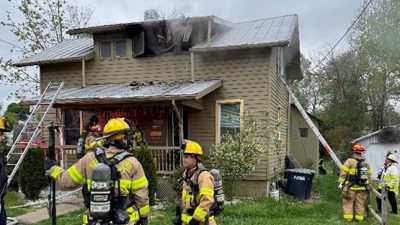Staff Report
News tips: [email protected]

“The temporary visitation restrictions were established to provide a safe and caring atmosphere for our patients,” explained Becky Brubaker, RN, MSN, infectious disease control practitioner at RMH. “The community’s cooperation with the visitation policy is key in keeping our patients and employees safe.”
The temporary visitation guidelines are as follows:
· Children and young people under age 18 may not visit patients in the hospital.
· Adult visitors are limited to two per patient.
· Anyone under the age of 18 should not be brought into hospital waiting rooms unless that person is here for treatment.
Exceptions to these guidelines may be granted for those visiting patients who have life-threatening conditions.
Although the nation and the state have seen a huge decrease in flu cases over the last few weeks, Brubaker said the public must remain vigilant.
“Although we have seen a dramatic drop in the incidence of H1N1 in the last few weeks, the regular flu season has not really begun,” she explained. “We also could have another spike in H1N1 later this winter. We need to continue to take precautions to keep everyone in our community healthy this winter, particularly those most vulnerable to illness. Our temporary visitation guidelines will remain in place at least through the early part of 2010.”
According to the U. S. Centers for Disease Control and Prevention, the proportion of younger people being impacted by 2009 H1N1 is much greater than what occurs during seasonal flu, and people 65 and older are much less affected by this virus than what routinely occurs with seasonal influenza.
The CDC recommends vaccination against H1N1 particularly for recommended target groups. These target groups include:
– Pregnant women
– People who live with or care for children younger than 6 months of age
– Healthcare and emergency medical services personnel
– Persons between the ages of 6 months and 24 years old
– People 25 through 64 years of age who are at higher risk for 2009 H1N1 because of chronic health disorders or compromised immune systems
Brubaker added that everyone can help curb the spread of flu by using good cough etiquette, practicing good hand hygiene, staying home from work or school when sick, and getting immunized if possible.
“We appreciate the community’s support as we take the needed steps to protect the most vulnerable from infectious disease and to lower the risk of spreading communicable diseases like the flu,” Brubaker said. “This partnership will help us keep our staff, patients and the community healthy and safe this flu season.”










